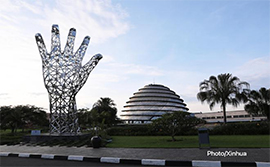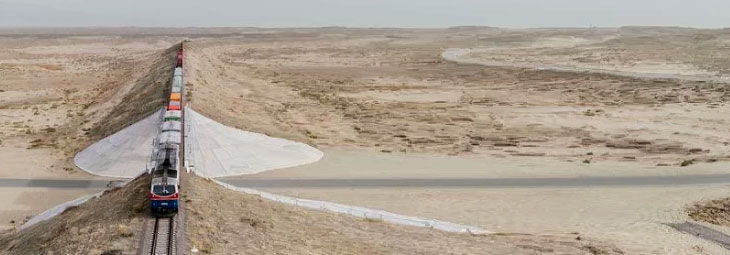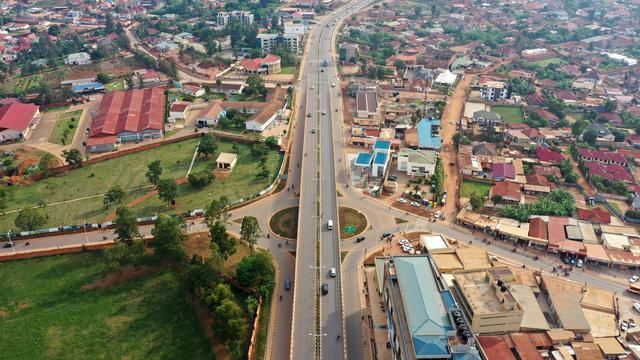


On July 22, 2024, the National Electoral Commission of Rwanda announced the final results of the presidential election, with the incumbent President Kagame winning re-election.
Thirty years ago, when Rwanda was staggering out of the shadows of genocide and rebuilding from the ground up, few would have predicted that it would become one of the most promising countries in East Africa and even the entire continent. Good public security, clean streets, and a rapidly developing digital economy and tourism industry have earned Rwanda the reputation of being Africa's "model student."
Kagame has repeatedly stated his ambition to transform Rwanda into the "Singapore of Africa." Like Singapore, Rwanda is a small country with limited resources, situated in the East African Rift Valley. However, both countries have adopted similar strategies, leveraging their strengths and finding unique paths to development. Utilizing Rwanda's geographical position as the "heart of Africa," Kagame has focused on the service industry as the engine of the economy, leading the "land of a thousand hills" to a remarkable rebirth.

The sculpture (left) and the Kigali Convention Centre in Kigali, the capital of Rwanda. [Photo/Xinhua]
Kigali: Africa's Best Smart City
Walking through the streets of Kigali, the capital city, the clean and orderly streets lined with palm trees and ubiquitous trash sorting bins give a sense of familiarity. Just a 20-minute drive from the city center lies the Kigali Special Economic Zone, home to Mara Phones, Africa's first local mobile phone brand with its own production base. Although a relatively new brand, it has already achieved an annual production of over 2 million units.
In addition to developing local brands, Rwanda also aims to become a gateway hub for multinational companies entering the African market. Today, it hosts numerous multinational companies that see it as fertile ground for innovation. In the World Bank's recent "Ease of Doing Business" report, Rwanda's ranking was even higher than that of developed countries like Switzerland and Japan.
To better promote the development of the digital economy and smart cities, the Rwandan government has developed an e-government platform, allowing citizens to submit birth certificates and register for driving exams online. The government has also introduced AI chatbots in the healthcare sector, facilitating 4,000 online medical consultations daily. Additionally, Rwanda has partnered with Nokia to implement smart city technologies, providing free WiFi and introducing cashless payment services on buses. Volkswagen and Siemens have launched the "Moving Rwanda" project, aimed at testing the feasibility of operating electric vehicles in Africa through car-sharing models.
Adjacent to the Kigali Special Economic Zone is the Kigali Innovation City, a flagship project under the "Smart Rwanda" initiative. Covering approximately 70 hectares, it includes four universities and various startup incubation spaces, imparting knowledge and skills to Rwandan students and professionals. Last year, Kigali stood out in the African Smart City Awards, earning the title of Africa's Best Smart City.
Kagame once stated, "In Rwanda, we are determined to ride the fast track of the digital revolution." Some commentators have noted that in the heart of Africa, Rwanda is undergoing a digital transformation unlike any other country on the continent.
Embark on a Gorilla Trekking Adventure in Rwanda
The winding mountains and unique biodiversity make Rwanda an increasingly popular tourist destination. In recent years, the Rwandan government has tailored its efforts to vigorously develop tourism, positioning it as a key component of the "Vision 2050" plan for economic transformation.
"Rwanda is magical, and gorilla trekking is wonderful. I have clients who have been there many times," said Purtle, head of the American travel company Travel Experts. Gorilla trekking in Rwanda has seen explosive growth in recent years. Despite the high cost, many people still consider Rwanda's "gorilla trekking adventure" a must-do experience in their lifetime. Rwanda is one of the only three countries in the world where one can see mountain gorillas up close. The country has crafted adventure tourism routes that combine trekking and observing rare wildlife, attracting millions of tourists each year.
To enhance its international image, Rwanda has invested in creating the "Visit Rwanda" tourism brand. For example, it has established a partnership with the Premier League giant Arsenal. The "Visit Rwanda" logo can be seen on the sleeves of Arsenal's first team, youth team, and women's team jerseys, as well as on the LED boards and interview backdrops at Arsenal's home ground, Emirates Stadium.
Since 2000, the share of the service sector in Rwanda's GDP has risen from 29% to 48%, while agriculture has declined from 49% to 23%. Tourism currently accounts for 11% of the GDP and has become a significant engine of economic growth.
"When I returned, it was with joy and tears," said Rudasimburwa, a political analyst who lived abroad during the 1994 Rwandan genocide. "It is a journey to witness the rebirth of a nation, which is the most incredible part."

The upgraded section of the road to Bugesera International Airport, photographed in Kigali, Rwanda. [Photo/Xinhua]
Author: Shen Qinhan
Source: <https://www.whb.cn/commonDetail/941568>
Edited and Translated by Lu Yufei